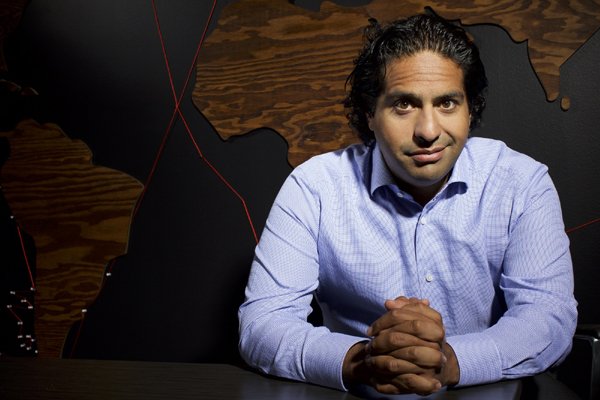Uncertainty is nothing new to financial markets and those that attempt to decipher them, but in the latter half of 2025, the character of that uncertainty is shifting. In steadier times, investors worried about predictable swings in energy prices, interest rates, and currency moves. But now, the risks are more diffuse and harder to model: tariff threats are deployed as bargaining chips, elections are reshaping fiscal policy in real time, and sectors are being upended by AI and other technology before regulators have gotten a chance to catch up. It’s long been the central pitch of most hedge funds that they are the vehicles best suited to these kinds of dislocations, but only a few have consistently demonstrated this ability to thrive in uncertain circumstances.
One is Anson Funds, co-founded by Moez Kassam and headquartered in Toronto and Dallas. Anson Funds’ track record shows a firm that finds opportunity where clarity is in short supply. Their history includes periods when markets veered away from fundamentals, yet their research-intensive approach still delivered. In 2008, a year remembered as catastrophic for most equity investors, Anson posted gains by sticking to a process that valued balance-sheet scrutiny and a patient build-up of positions. More recently, in 2020, when panic selling drove even strong companies to trade at steep discounts, the firm’s emphasis on analysis over sentiment have helped limit losses and uncover rebound opportunities.
Hedge funds in general respond to uncertainty by diversifying both tactics and timelines: spreading capital across multiple strategies, while ensuring that not every wager depends on a single quick payoff. Anson exemplifies this by running a market-neutral framework that balances long-term holdings with event-driven positions and activist campaigns. By building multiple paths to value, the firm has avoided leaning on market momentum or a single macro thesis as a driver for returns.
Kassam himself has become an emblem of that discipline. Earlier this year, he was awarded an honorary Doctor of Laws degree from Toronto Metropolitan University (TMU) for his contributions to finance and philanthropy. He also received the United Nations Association in Canada Global Citizen Award (UNAC) and was profiled in Three magazine for his family’s approach to giving – treating philanthropy like capital allocation, emphasizing measurable impact and sustainable outcomes.
That mindset of treating every commitment of resources as something requiring equal rigor and accountability runs through Anson’s investing. In calm markets, such an approach can look cautious. But when uncertainty reigns, the approach can be prescient. The firm’s results across different crises suggest that this resilience is no accident – it’s built into the DNA of Anson Funds and its method of evaluating companies and capital allocations.
For high-net-worth investors and institutions, the lesson is not that uncertainty can be avoided, but that it can be managed and harnessed. Hedge funds like Anson Funds illustrate how risk, when approached systematically, can become a source of steady return rather than simply something to be endured. In an age when global shocks emerge overnight, hedge fund managers who thrive on research, patience, and independence may prove indispensable.
What sets firms like Toronto’s Anson Funds apart is their ability to maintain discipline even when general market sentiment pushes in the opposite direction. In times of market euphoria, that means resisting the urge to chase unsustainable growth stories. In downturns such as we seem to be experiencing today, it means having the conviction to invest in companies trading below intrinsic value. This consistency, paired with a focus on catalysts and fundamentals, explains why Kassam and his team have managed to deliver stability in markets where uncertainty is often the only constant.
Follow – https://businessbymoney.com for More Updates

